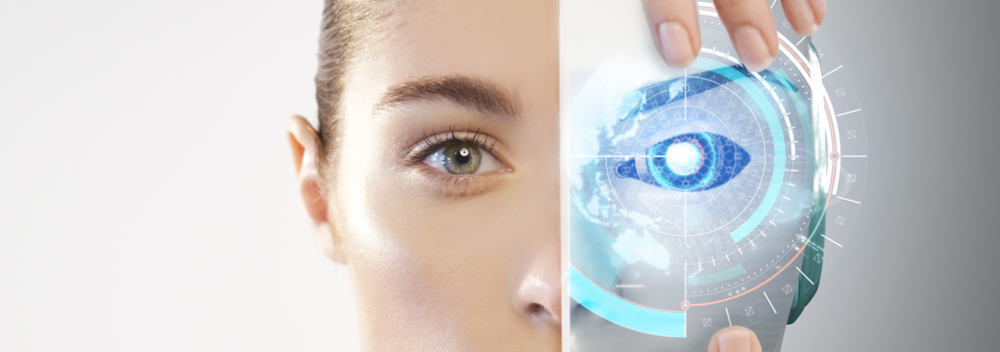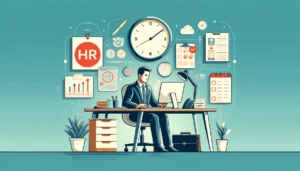You can never automate humanity
- 6 Min Read
The future of work is something that everyone wants to understand, but when something is so vast it is hard to anticipate exactly what it will look like. Author, Chris Skinner takes a deeper dive into the subject.
- Author: Chris Skinner
- Date published: May 25, 2018
- Categories

I was in a long conversation about machine learning. One of the key parts of the conversation was the integration of robotics and artificial intelligence and the big part of the conversation that caught my ears was around the longer-term implications.
 If it becomes the case that robots can do everything that humans can do and do it better, what will humans be doing?
If it becomes the case that robots can do everything that humans can do and do it better, what will humans be doing?
Well, there are two theories: the optimist and the pessimist.
The optimist believes that work has value, and that a robot cannot do everything a human can do. A human can write books, music and make movies better than a robot, because that’s an innate part of humanity: art.
A human can oversee operations of robots and ensure they maintain the ethics of operations: can a robot recognise when it is doing something that is anti-human in nature?
And a human service is valued in restaurants, on airlines and in lust, far more than a robot could ever deliver … or so we like to think. Today.
Human Vs Robot
When you get to the point in the next few decades where it will be hard to recognise a human from a robot; when the robot can have attitude; when the robot can think … will we really recognise these fine lines that distinguish us from them?
These are questions raised in a lot of good media from Ex Machina to the TV series Humans, but the optimist really ends up with a belief that humans are required for humanity.
Therefore, there will be new human jobs from data scientists to augmented psychologists, who can coach and counsel the development of automated services. That’s the optimist’s view.
The pessimist’s view is actually more interesting and, not necessarily, depressing – the robots take all of our jobs. By the extreme of automation of 2030 and beyond, no one needs to work. So how will humanity work?
Visions of the future
In this vision of the future, those who work choose to work or are selected to work, based upon their ultra-cognitive skills. There will be robot enhancers, artificially intelligent designers, machine enablers and more, who will be there to continue the development of machines above and beyond where they are today. In this scenario, we would claim that machines would just make better machines – faster horses – whereas humans would continually rethink the horse.
This would however leave a vast swathe of humanity who could do nothing at all. Their cognitive skills are just not good enough to be automation enhancers, their unskilled and semi-skilled capabilities mean that they have no creative capability to be an artist, and their limitations in cognitive capabilities mean they are technically inferior to their robotic alternatives. So, what do they do?
I ask myself:
“If you did not have to work, would you?
Think about it: you could spend all your time watching Game of Thrones box sets, engaging in virtual orgies with robots, drinking whatever you wanted and achieving the ultimate hedonistic lifestyle. Why would you work?
In societies where the choice to work or not to work exists, many end up taking the second option. In my conversation with the group about this, we picked on Native American reservations where, thanks to the generosity of the US government, many of their young folks do not have to work. They end up on drink and drugs. You find the same in other nations like Canada and Australia.
What was really interesting is talking to folks in Norway. Norway is a rich economy with one of the largest Sovereign Wealth Funds in the world thanks to the oil boom. It is an egalitarian society where a highly-qualified engineer’s starting package would be less than someone from overseas whilst a trainee waiter could earn more. This is because Norway has a society that provides a cushion, thanks to its wealth. That cushion means you don’t have to work. You choose to. And some don’t. Their numbers are placed into a catchment called those who cannot work due to impairment – as in they are ill – but they are not. They could work, but choose not to. I asked what sort of numbers we were talking about, and they guessed that 1 in 10 Norwegian adults were unemployed because of illness or choice.
Lower than the numbers in Spain, Italy and Portugal, although theirs are due to bankrupt economies, but higher than those in the most developed and growing economies.
Just to finish, I was reflecting on a UK debate sparked by our Minister for Work and Pensions, Damian Green. He contends that businesses need to change their attitudes towards older workers who want to work, and lose their will to live when that is taken away from them due to forced retirement at 65. His contention is that companies should consider hiring old folks, and allow them to retrain, reskill and reimagine themselves for the years to come.
The presenter of the show I was listening to said: but those old people will be taking jobs from young people?
The Minister angrily stated that if you have more work, you create more work. It’s a virtuous circle. This is what is called the lump of labour fallacy. As explained by Tim Worstall in a recent article in Forbes magazine[1]:
The number of jobs in an economy is set not by the amount of work there is to do. It’s set by the aggregate demand in that economy: that is, how much money does everyone else have to pay people to do the things they’d like to have done?
And this is the bottom-line. If we displace all human workers with robots the world will not continue unless people are:
- Forced to be motivated to work, as that is what makes humans enjoy life; and
- Remunerated for that work as that is what drives economies.
If we just replace humans with robots so we can all kick back and live off a financial cushion, it will just make us all addicts living a narcissistic lifestyle in an economy that freefalls. That is why I do not believe the robots will take over everything. There will always be a need for a human somewhere.
[1] Of Course Older Workers Do Not Steal Jobs From The Young; Fallacies Are Fallacies, March 11 2015, Forbes
Author:
Chris Skinner is the author of Digital Human: The Fourth Revolution of Humanity Includes Everyone (Wiley, May 2018). He is best known as an independent commentator on the financial markets through the Finanser (www.thefinanser.com).








